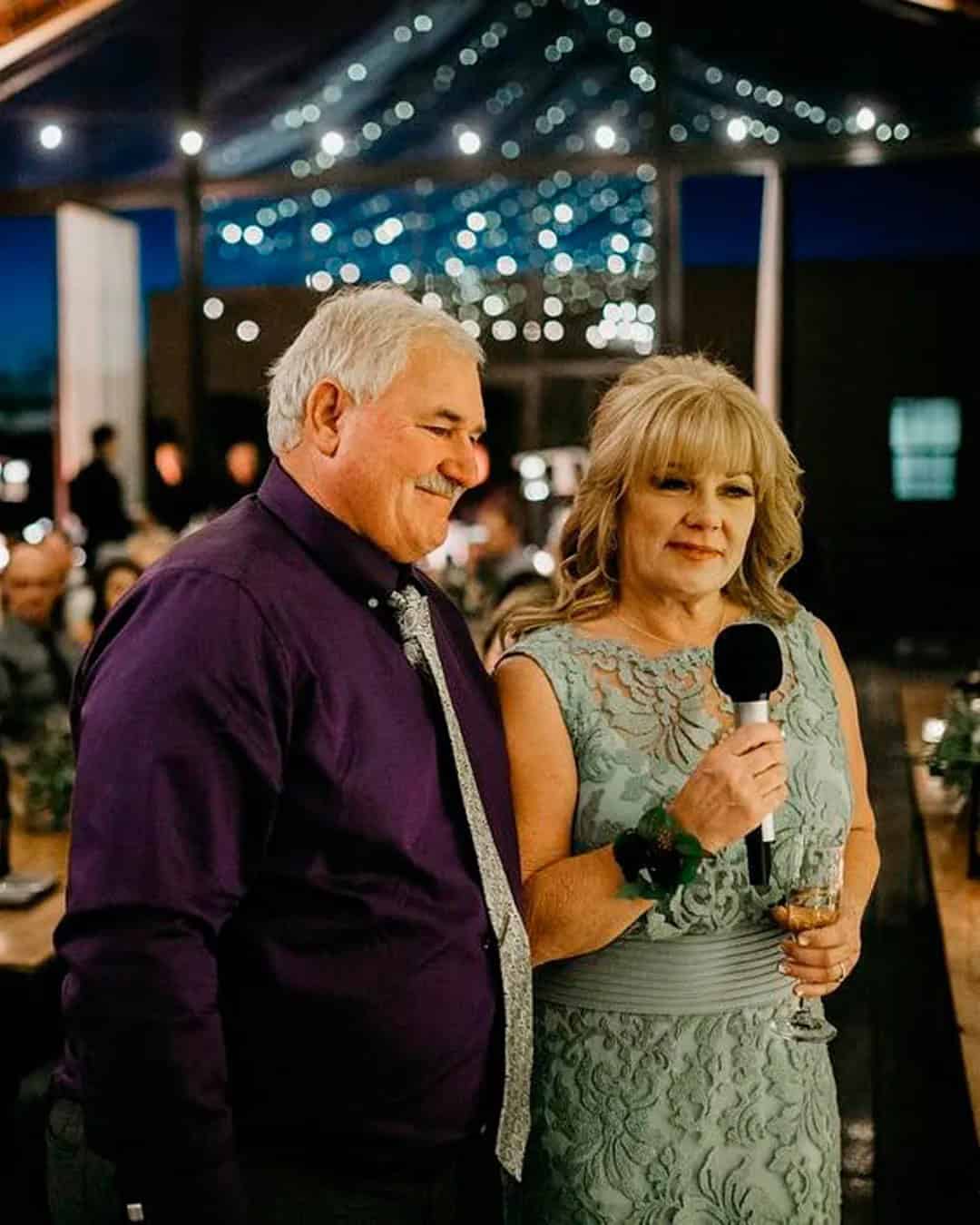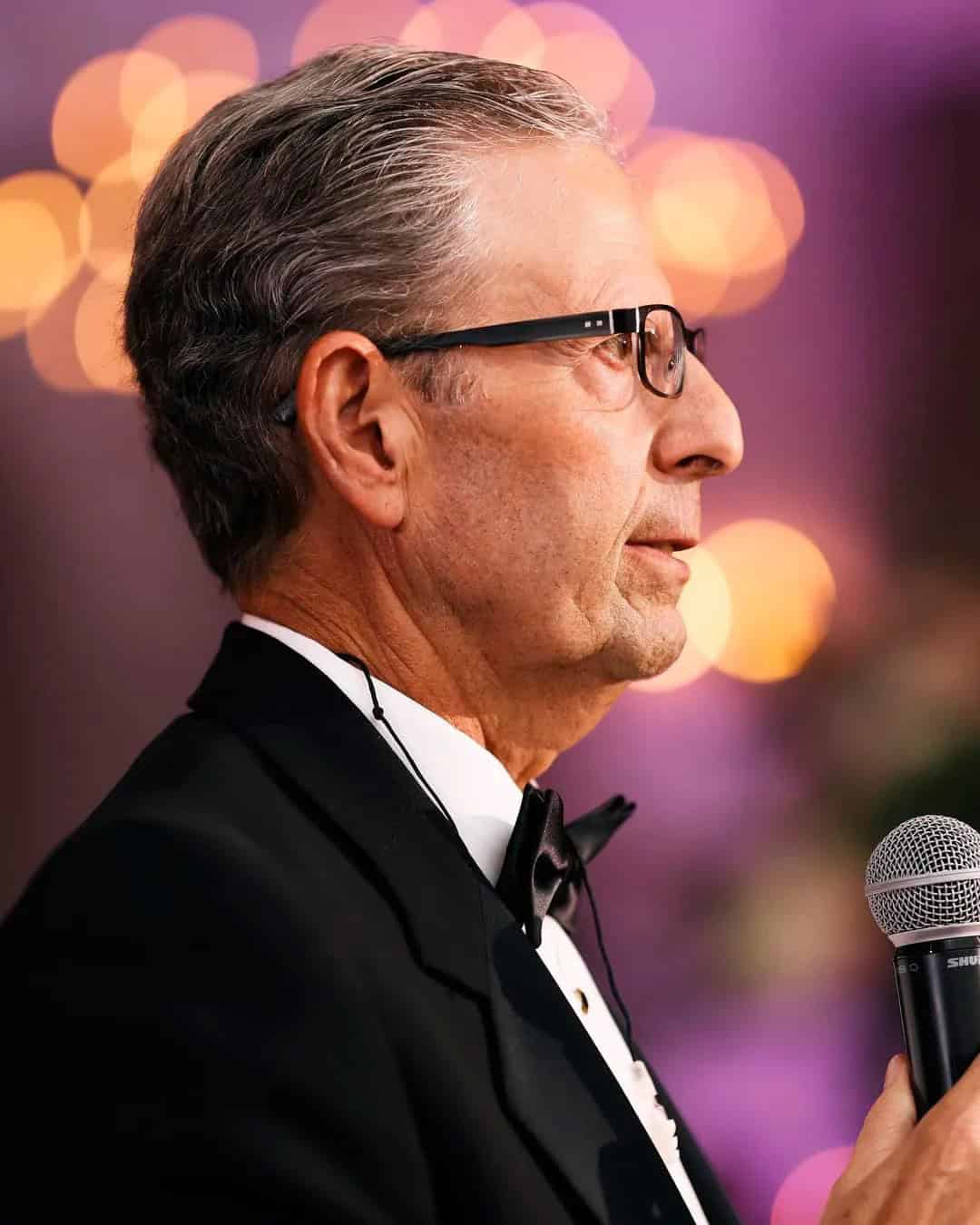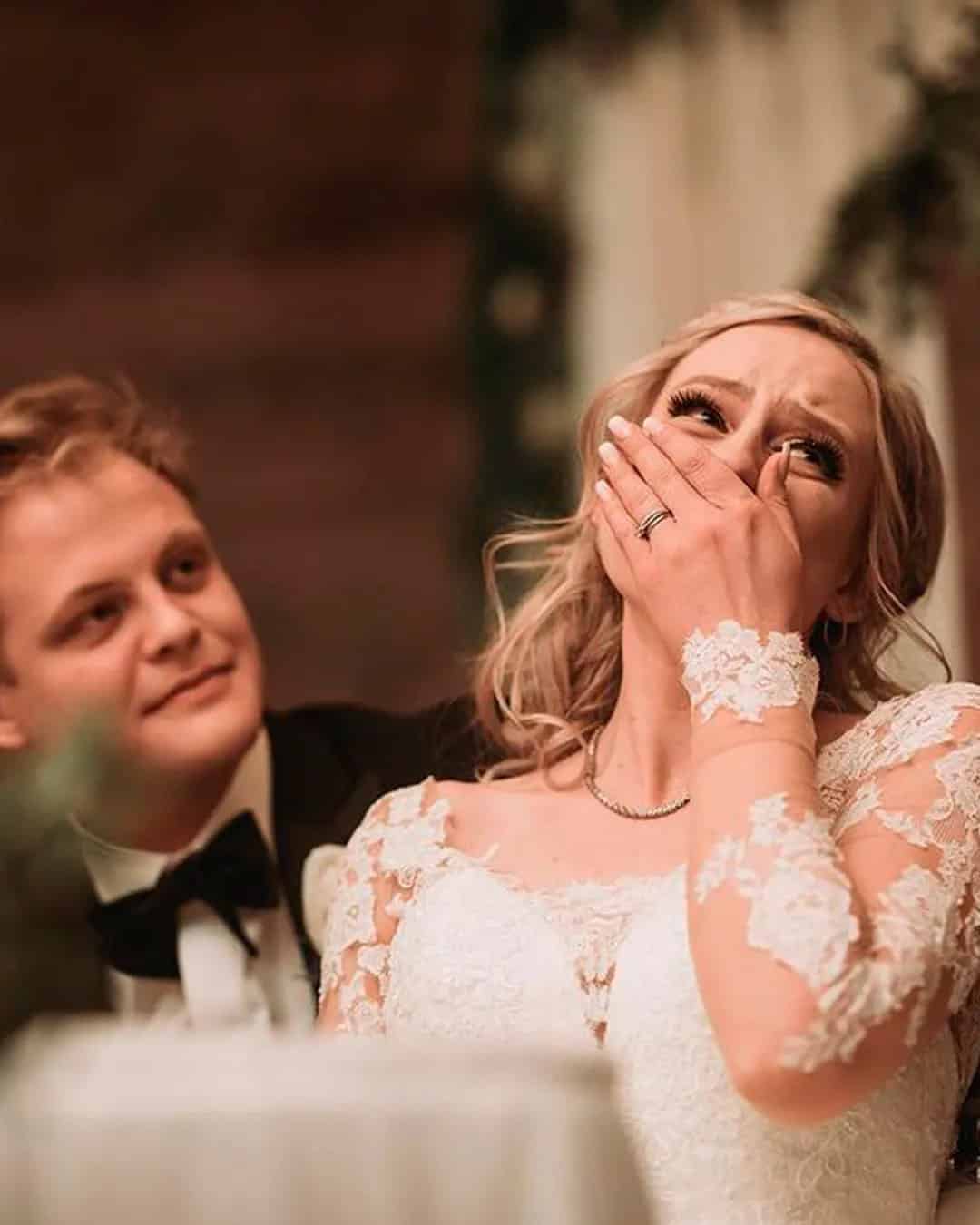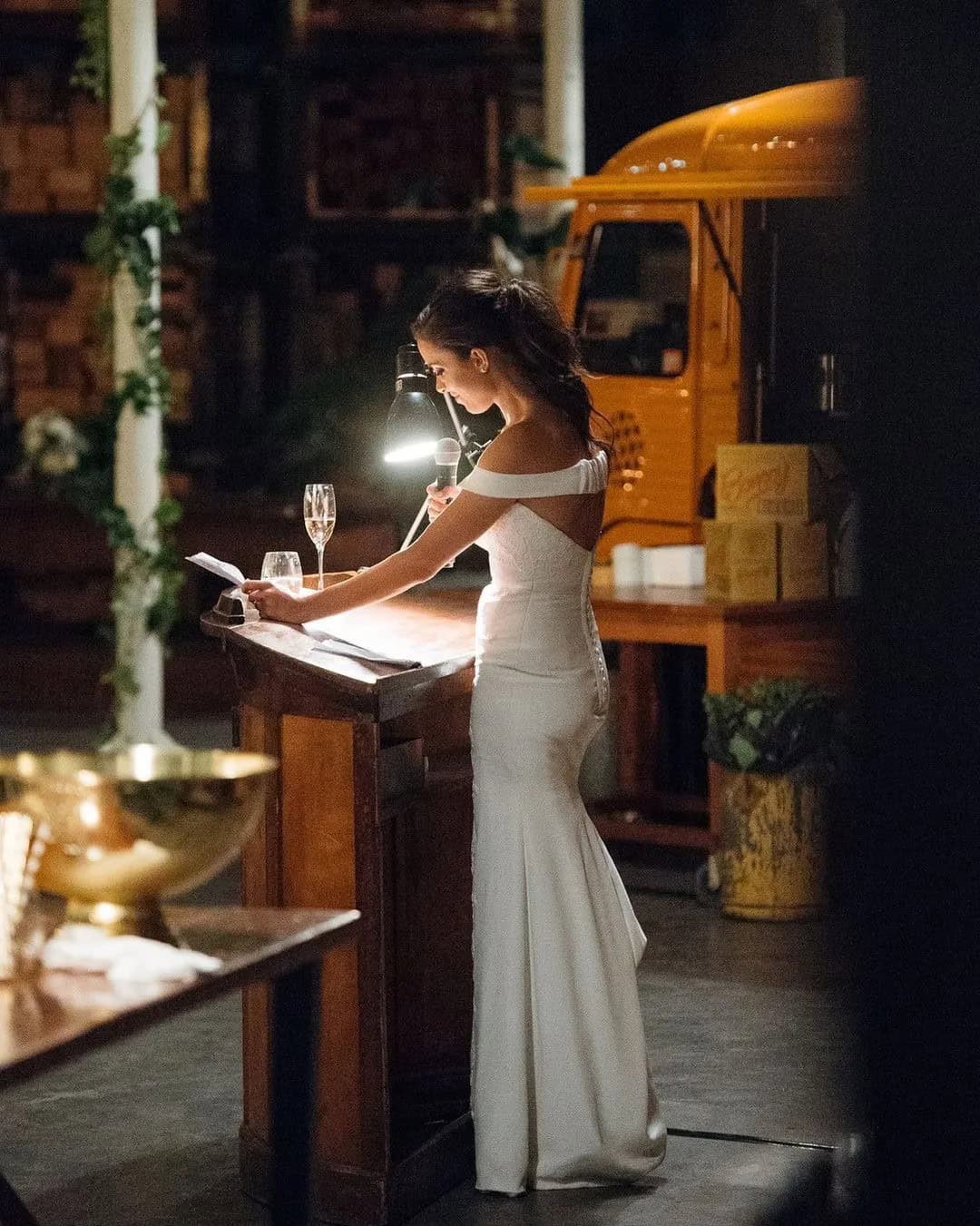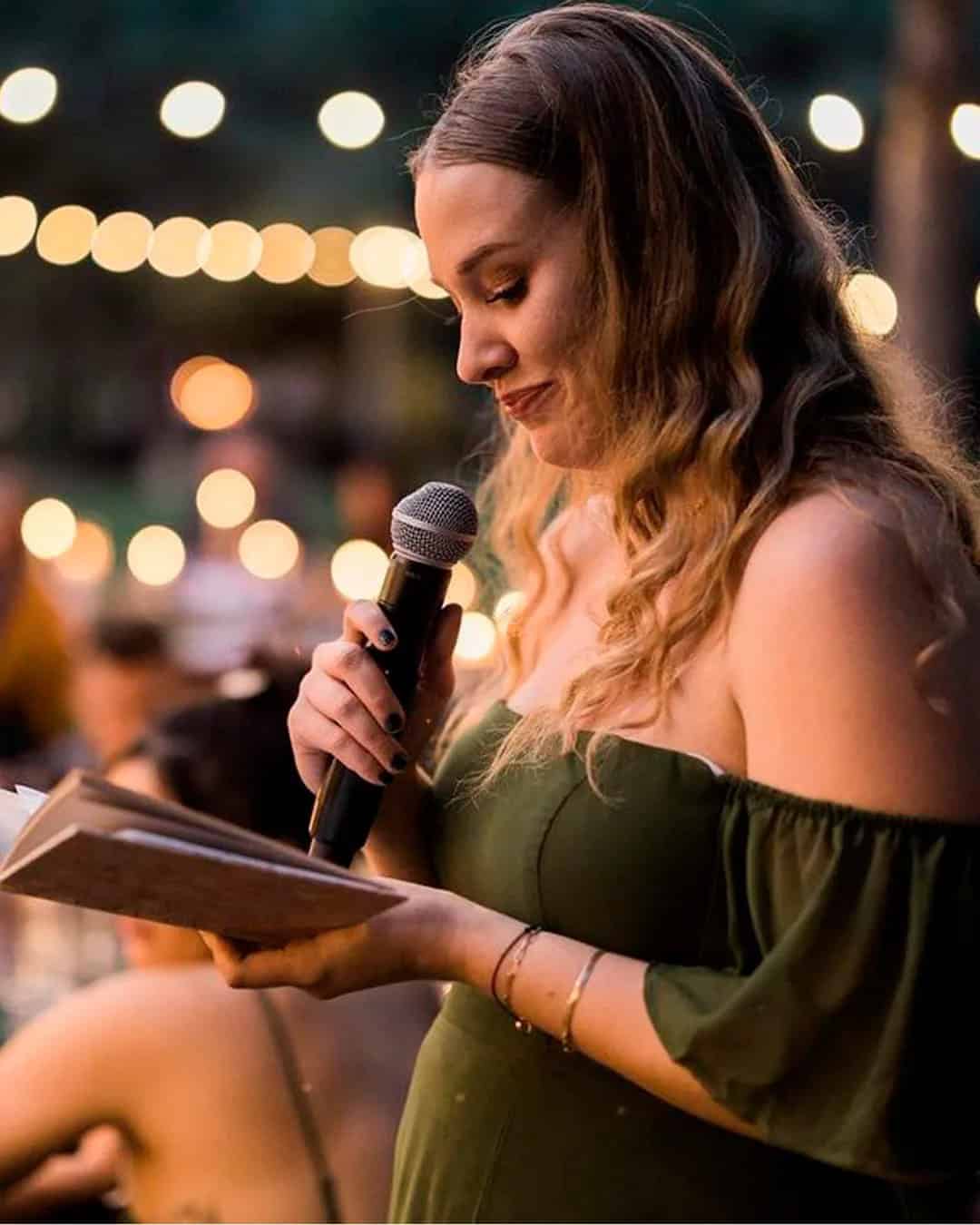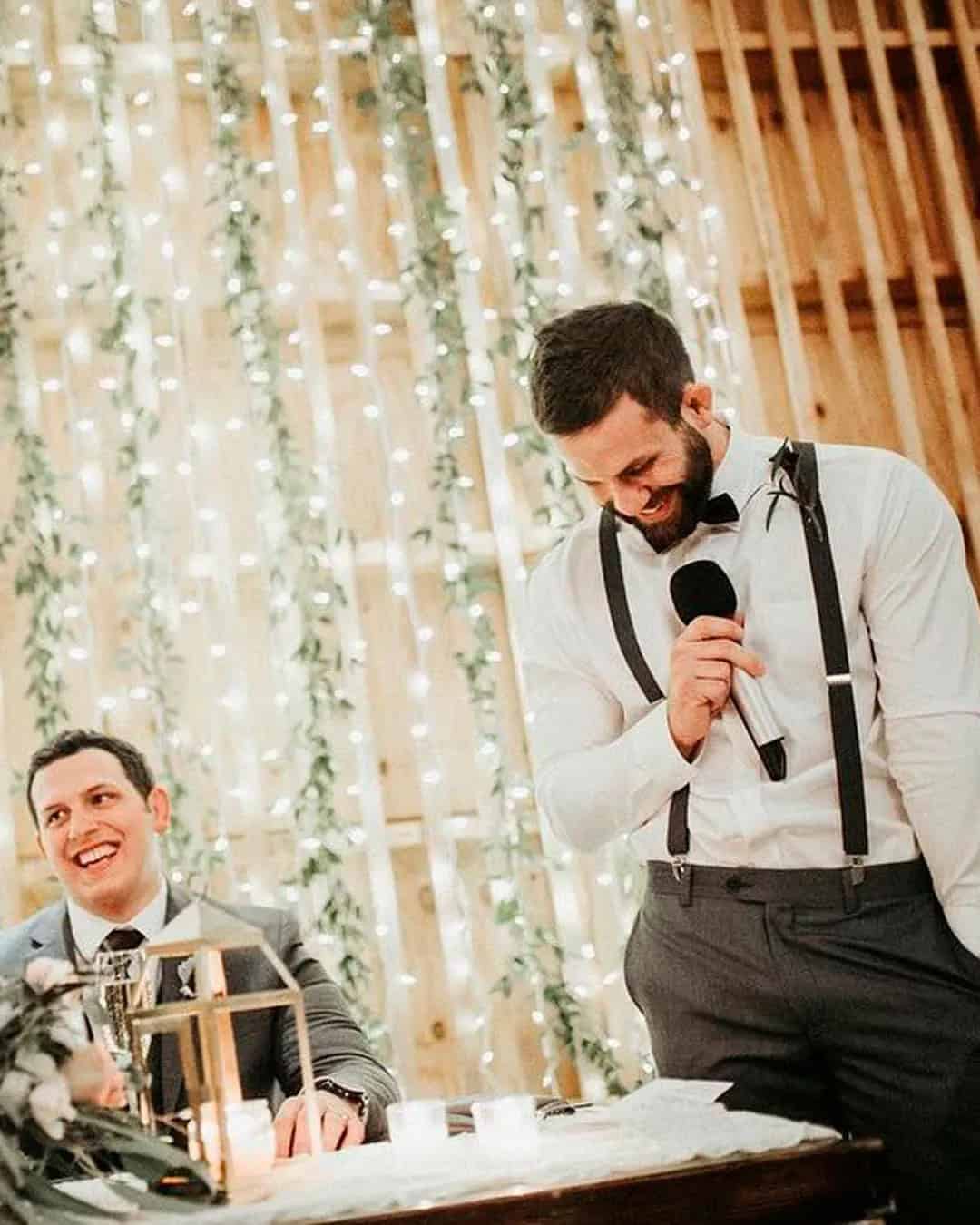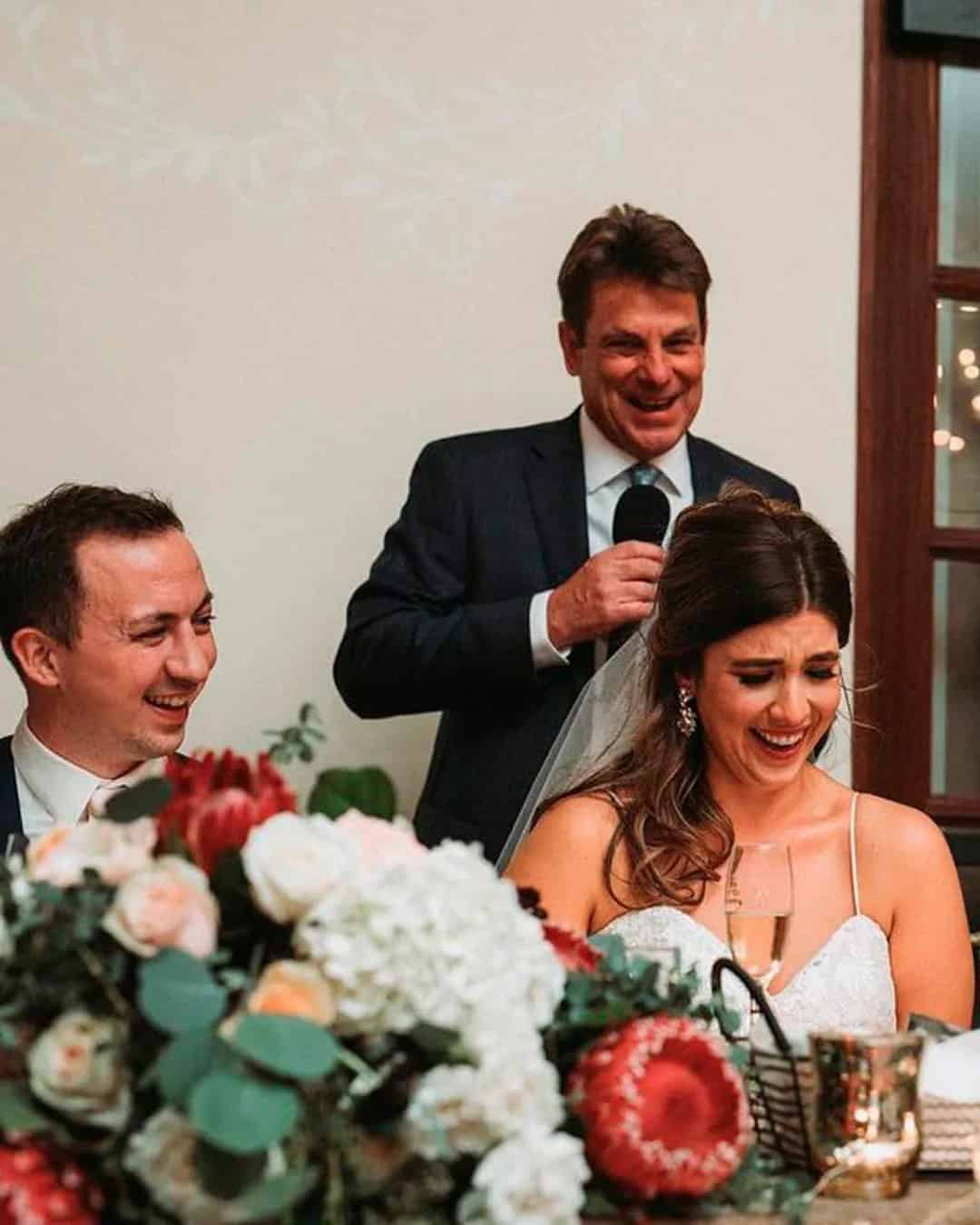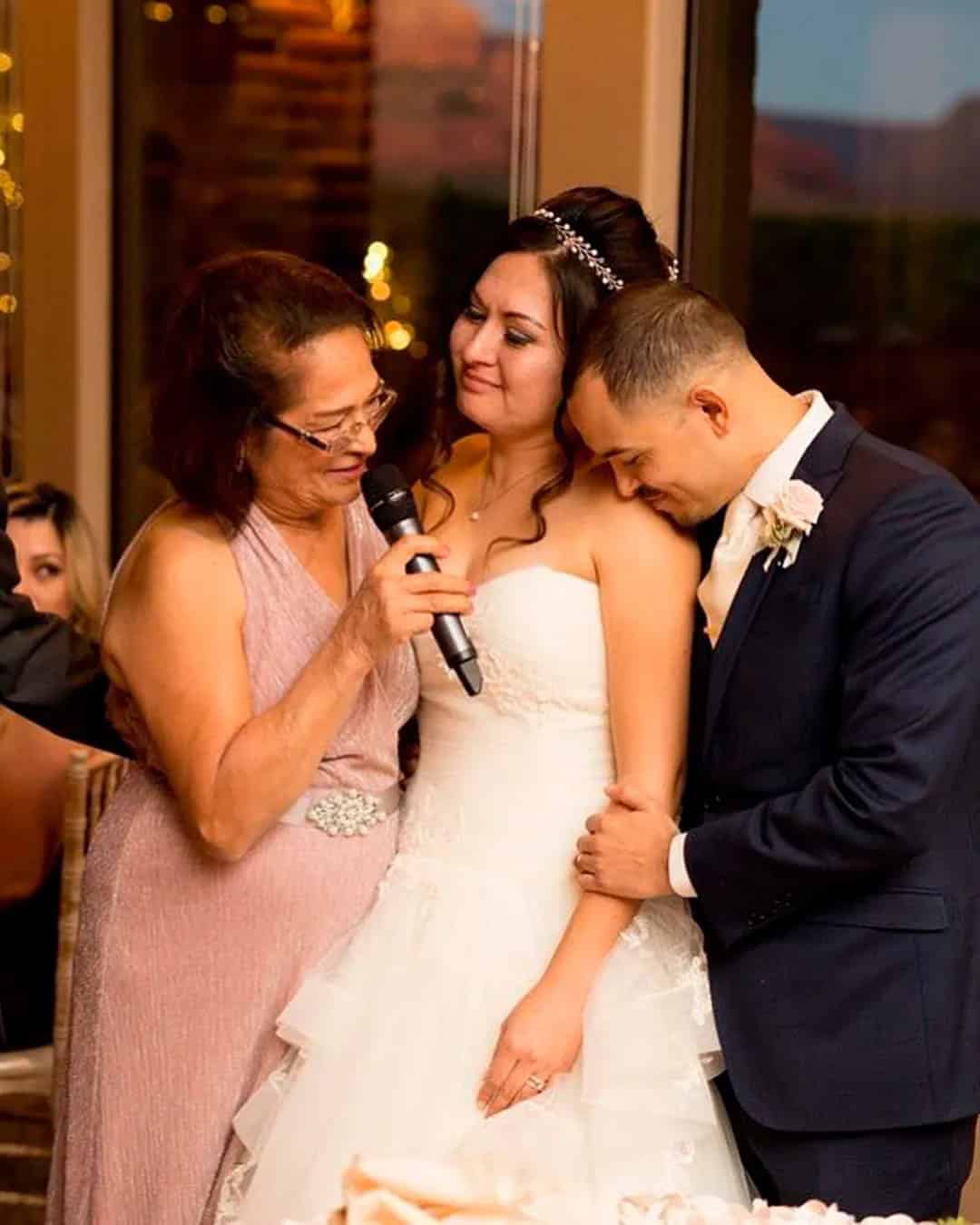The order of speeches at wedding events is a crucial element that shapes the narrative and reveals the couple’s journey to their guests. A well-structured sequence can evoke emotions, create connections, and leave a lasting impression. While modern weddings have become increasingly flexible, understanding traditional speech orders can be beneficial for those who want to incorporate time-honored customs into their celebration.
This guide will provide an overview of the traditional wedding speech order and offer practical tips for planning a memorable and engaging experience.
Frequently Asked Questions
Who gives speeches at weddings and in what order?
In a classic wedding celebration, the newlyweds typically take center stage with their own remarks. Following this, the traditional order unfolds: the bride’s father, the groom’s father, the maid of honor, and finally the best man all deliver heartfelt speeches to pay tribute to the happy couple.
Do wedding speeches come before or after food?
Timing is everything when it comes to speeches during a reception meal. For optimal impact, consider delivering them roughly three-quarters of the way into the dinner service. This strategic placement allows your guests to settle in, get comfortable, and focus on the presentation. With everyone seated and ready, your speech will have maximum effect and leave a lasting impression.
How long is a wedding speech supposed to be?
When crafting a wedding speech for a traditional wedding, it’s essential to strike the right balance in terms of length. Ideally, a well-delivered speech should last between 3 to 5 minutes. If it falls short of this mark, you risk leaving out important sentiments and stories that are meant to be shared with the gathered guests. On the other hand, exceeding this time frame can result in audience fatigue, causing listeners to lose focus on your heartfelt words.
Finding the sweet spot within this range is crucial for delivering a memorable and impactful wedding speech.
How Many Speeches Do You Have at a Wedding?
In traditional wedding ceremonies, there are typically six standard speakers who take the stage. However, it’s not uncommon for a Master of Ceremonies to join in as the seventh speaker, adding an extra layer of professionalism and organization to the proceedings. More recently, we’ve seen a growing trend where mothers of the bride and groom deliver separate speeches, making them the eighth and ninth speakers to take part in this special day.
What is the Traditional Wedding Speech Order?
In wedding receptions, a traditional order of speeches is often observed, honoring those who have played a significant role in the lives of the newlyweds. These influential individuals, including friends and family members, can be credited with helping bring the couple to this milestone moment.
The bride and groom typically take the microphone first to express their gratitude to their guests for being part of their special day.
The father (and sometimes mother) will then offer heartfelt words as a token of appreciation, recognizing their role in making the wedding possible. Following this, the groom’s parents will extend a warm welcome to the bride as she joins their family.
Finally, the maid of honor and the groom will share stories about the depth of their friendship and how the couple has evolved over time.
This heartwarming exchange is often a highlight of the reception, offering a chance for loved ones to reflect on the journey that’s brought them to this joyous occasion.
The Father of the Bride or Parents of the Bride
As any father would attest, delivering a wedding speech without mentioning his little girl’s growth and development is impossible. Yet, some dads may overdo it with sentimental remarks, while others might shy away from the task altogether. To strike a balance between these two extremes, follow these guidelines for the father of the bride.
Start by expressing gratitude to everyone in attendance, acknowledging those who traveled far and wide, and recognizing individuals who played significant roles in the bride’s life. Although they may not be speaking, their contributions are essential to the wedding’s success.
Next, share stories about how your little girl has blossomed into the woman she is today. Reflect on her journey through school, her aspirations, and anecdotes that reveal her character.
Finally, address the bride and her parents by sharing a personal anecdote about when you first met each other. This is an opportunity to inject some warmth and humor into your speech without being too sappy.
What not to do: avoid listing names without providing context or significance; resist the urge to lavish praise on your daughter, as this can detract from the overall tone of unity among guests; and keep your remarks concise and punchy, respecting the time allotted for speakers and engaging the audience.
The Father of the Groom or Parents of the Groom
When it’s time for the father of the groom to take the microphone, his role is clear: welcoming the bride and her parents into the family with humor, heart, and a touch of sincerity. While he has more leeway to inject some lighthearted moments, his primary goal remains to express gratitude, admiration, and well-wishes for the newlyweds. Here’s what he should strive for:
* Start by acknowledging the bride’s family, even if they’re not footing the bill.
A nod of appreciation for raising a wonderful daughter is always in order.
* Share stories about your son’s upbringing, highlighting his growth and transformation into the man he is today. If humor is your game, sprinkle it throughout, but keep the tone light and playful.
* Give credit where credit is due: acknowledge how the bride has positively impacted your son’s life and made him a better person.
Let her know you’re grateful for her presence in his life and the new dynamics she brings to the family.
And what not to do:
* Avoid mentioning exes, no matter how well-intentioned. It’s a guaranteed way to derail the mood and leave your audience feeling uncomfortable.
* Refrain from jokes that cross the line into insults or disrespect. Know your audience well enough to gauge their reaction, and err on the side of caution if you’re unsure.
* Steer clear of negative advice or veiled warnings. Your goal is to wish the couple a life filled with love and happiness – keep it positive and uplifting.
By following these guidelines, the father of the groom can deliver a speech that’s both heartwarming and entertaining, setting the tone for an unforgettable wedding celebration.
Groom Wedding Speech Order
When it’s time for the groom to speak at the wedding, tradition usually dictates that he follows the parents’ speeches. This is often a moment when the groom distributes gifts to his wedding party and expresses gratitude to guests, venue, and vendors. To make the most of this opportunity, the groom should prioritize three key elements: thanking both sets of parents, sharing the story of how he met the bride, and looking ahead to their future together.
Thanking the parents is crucial, as it shows that you value their words and are grateful for their support. Try to weave in some specific points they made during their speeches to demonstrate that you were actively listening and gained valuable insights from their wisdom. This will not only make them feel appreciated but also create a sense of unity among all the speakers.
The story of how he met his bride is another essential part of the groom’s speech.
He should aim to paint a vivid picture of your journey together, highlighting key moments that illustrate your growth and the realization that she is ‘the one’. This will give guests a sense of your love story and make it more relatable.
Finally, the groom should express his enthusiasm for their future life together. The wedding marks the beginning of this new chapter, not the end goal.
He can share some of his hopes and dreams for what’s to come, emphasizing how excited he is to start this new phase with his partner.
In terms of what to avoid, it’s essential to steer clear of clichés like the ‘ball and chain’ trope. While humor is great, talking about losing your freedom can feel a bit overdone. Similarly, don’t try to distribute gifts while giving your speech – it’s best to save this for a natural break or assign someone else to do it for you.
Ultimately, the groom’s main goal should be to celebrate his love and happiness with his new wife. While thanking vendors and guests is important, he shouldn’t let it overshadow his joy.
Bride Wedding Speech
At a wedding, the traditional order of speeches has the bride taking the stage after the parents and groom. Her speech is an opportunity for her to express gratitude, acknowledge the people who have played a significant role in her special day, and share a heartfelt message with her new husband. The tone is often similar to the groom’s speech, but with her own unique experiences and perspective.
When crafting her speech, the bride should prioritize recognizing the bridesmaids, who have been instrumental in her relationship and the success of the wedding. A thoughtful mention or gift can go a long way in showing appreciation for their support. The bride should also take the opportunity to share her story of how she met her groom and the journey they’ve taken together.
This is an excellent chance to poke fun at her partner in a lighthearted manner, but it’s essential to avoid falling into clichés or stereotypes. Moreover, the bride should make time to thank her parents, even if others have already expressed their gratitude. Her relationship with them is unique and deserving of personal recognition. In terms of what not to do, the bride should refrain from repeating thanks to people who have already been acknowledged.
There are plenty of individuals to express appreciation for, and reiterating the same names can become monotonous and diminish the impact of her praise. The speech should also avoid becoming too self-focused. While it’s natural for the wedding to be about the couple, taking a moment to acknowledge others and their roles in the celebration can add depth and warmth to the overall tone.
Lastly, the bride should strive to keep her speech within a reasonable time frame, matching the pace of the other speakers. This will ensure that the momentum and timing of reception activities are maintained, keeping the evening flowing smoothly.
Maid of Honor/ Bridesmaids Speeches
When it’s time for the Maid of Honor to take the microphone, she typically delivers her wedding speech towards the end of the list. Her primary focus is on thanking those who haven’t been thanked yet and sharing heartfelt anecdotes about the bride and her first impressions of the groom. As part of their own speeches, bridesmaids should also consider acknowledging the groomsmen and ushers, often overlooked heroes who keep everything running smoothly.
While doing so, they can highlight the groom’s endearing qualities, such as his personality traits or a memorable experience that solidified their friendship. Ultimately, however, the main focus of the speech should remain on the bride – sharing stories that showcase her unique personality, relationship journey with the groom, and what makes her special to each bridesmaid.
It’s essential for speakers to strike a balance between celebrating the groom and honoring the bride, ensuring their words are both entertaining and meaningful. To avoid any potential faux pas, it’s crucial to remember not to share stories that might embarrass the bride in front of her parents or the groom. Moreover, offering thoughtful advice and well-wishes is also an important aspect of a bridesmaid’s speech.
Finally, it’s imperative for them to practice their speeches beforehand, so they feel confident and natural when delivering their heartfelt sentiments.
Best Man Speech
When it’s finally time to wrap up the speeches at a wedding, the best man typically has the stage all to themselves. This is often the precursor to music and dancing, so it’s crucial to leave the guests feeling energized and ready to let loose. To achieve this, the best man should aim for a concise and lighthearted approach, peppering their speech with punchy jokes and short stories that keep things fresh and exciting.
It’s also essential to encourage the crowd to get up and dance – often, guests are hesitant to be the first ones on the floor, so a gentle nudge can go a long way in getting everyone moving. Just remember to temper your humor with sensitivity towards older and younger attendees. On the other hand, there’s no need to feel pressure to be the life of the party. Your role is to support the groom, not try to upstage him with stand-up comedy skills.
Be genuine, authentic, and true to yourself – that’s what matters most. And as you take the mic, keep in mind that this isn’t a time for inside jokes or dwelling on a single moment from college or the bachelor party. Instead, focus on sharing a story that showcases the groom’s character development over time. That way, everyone will leave feeling uplifted and entertained.
Common Speech Tips For Modern Wedding
In recent years, wedding speeches have evolved from being a formal, rehearsed affair to a more relaxed and spontaneous occasion. While traditional speakers like best men and maid of honors still hold court, modern weddings often feature a broader range of voices. Siblings, family members, and even guests are now encouraged to share their thoughts and well-wishes with the newlyweds. If you’re one of these non-traditional speakers, there are a few key things to keep in mind.
First, take a moment to introduce yourself and explain your connection to the bride or groom. This provides context for what you’ll be sharing and helps the audience connect with your words. Next, don’t be afraid to express your joy and offer some advice. If you’re younger than the couple, use this opportunity to share how they inspire you and why their love is a positive force in the world. If you’re older, draw on your own life experiences to offer words of wisdom.
Remember to keep things concise – especially if you’re speaking at an open mic event where there may be multiple speakers. You want to make sure you have time to deliver your thoughts without cutting anyone off. Finally, don’t try to improvise your way through a speech without any preparation. Take some time to collect your thoughts and organize them in a logical order.
And if you’re not sure what to say, it’s okay to pass – there may be others who want to share their thoughts with the happy couple. Ultimately, the key is to speak from the heart and make sure that your words add something meaningful to the celebration. By doing so, you’ll help create a memorable and enjoyable experience for everyone involved.
Wedding Speech Order Planning Tips
The traditional structure of wedding speeches is well-established, with subtle variations depending on whether both parents speak or just one, and the order in which the maid of honor and best man take the floor. In the past, men typically spoke on behalf of their families, but this tradition has largely fallen out of practice today. If timing issues arise, mothers are often the first to be omitted from the lineup.
When it comes to the maid of honor and best man, the best man is expected to bring a lighthearted tone to proceedings, setting the stage for the dancing portion of the event. Regardless of where you fall in the order, there are a few guidelines that can help you deliver a standout speech. Start by crafting a rough draft, outlining the basic structure and then inserting prominent memories that support your message.
Practice speaking aloud to ensure you’re using the right words at the correct pace. And remember, it’s okay to enjoy the celebratory atmosphere – just be sure not to overindulge in champagne. Be mindful of the speakers who come before and after you, as you’ll need to seamlessly bridge the gap between them. The traditional order is successful because it’s familiar, providing a strong narrative that each speaker builds upon.
Take pride in your role and the story you’re helping to tell about the happy couple’s journey. Whether you realize it or not, you play a vital part in their special day.
